News
Eggs for festive season: Consumers face scrambled situation
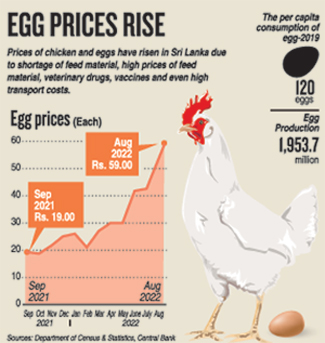 Consumers are left in a scrambled state in fear of an egg shortage during the festive season, mainly due to a tug-o-war between authorities and the poultry industry over price and production.
Consumers are left in a scrambled state in fear of an egg shortage during the festive season, mainly due to a tug-o-war between authorities and the poultry industry over price and production.
The demand for eggs from large scale cake manufacturers and hotels entertaining foreign tourists have started to increase, egg sellers say, but the supply is limited due to a drop in production and increased raids on traders who are selling eggs at higher prices.
Poultry farmers say the Government, despite imposing fines on traders selling eggs above Rs 50, have neglected the plight of farmers.
All Island Poultry Farmers Association President Ajith Gunesekare said poultry farmers were struggling to find feed at lower prices. This makes up 80 percent of the production cost.
“Previously the cost to breed 1,000 hens was about Rs 800,000 and now it is Rs 2.5 million. This is mainly due to the increase in feed. If we need 400,000 kilos of corn and other feed, the local production is about 75,000 kilos. The rest has to be imported,” he said.
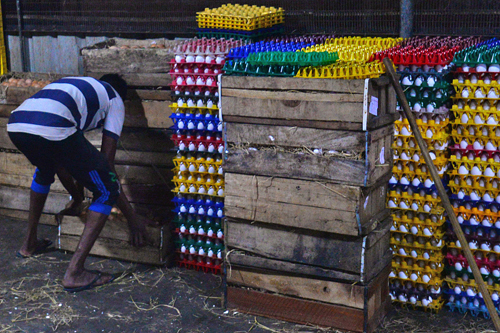
The demand for eggs has increased with the coming festive season.
According to Mr Gunesekare egg-laying chicken breeds need to be imported unlike the local broiler chicken and this had completely stopped.
“It takes about five months for hens to lay eggs. Egg producers are asking the Government to remove the controlled prices mentioned in the gazette or at least to increase the maximum retail price to Rs 55 until they increase production from the profits earned,” he said.
“If the country is expecting an influx of tourists, hotels should be able to provide eggs for breakfast and serve local favourites such as egg hoppers. Small and medium scale tourist restaurants and hotels will be affected by a shortage, as well as families purchasing from retail shops,” he said.
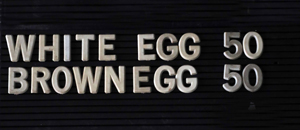 He said farmers were no longer delivering eggs due to increased transport and production costs. Therefore, sellers had to hire vehicles and buy directly from farmers.
He said farmers were no longer delivering eggs due to increased transport and production costs. Therefore, sellers had to hire vehicles and buy directly from farmers.
The Consumer Affairs Authority (CAA) continued to raid egg centres or shops selling eggs for more than Rs 50 following a gazette issued in August.
The gazette said the maximum retail price of a brown or red egg was Rs 45 and a white egg Rs 43. However, following discussions with the industry, it was permitted to sell eggs between the maximum retail price and Rs 50.
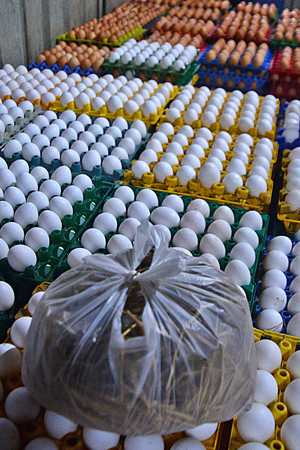 According to CAA Chairman Shantha Niriella, the objective to introduce the maximum retail price was to ensure eggs were affordable to all. Close to 280 raids had been conducted since the gazette was issued in August. Egg traders who were selling eggs for Rs 55 were raided and fined Rs 100,000 each, and some even more.
According to CAA Chairman Shantha Niriella, the objective to introduce the maximum retail price was to ensure eggs were affordable to all. Close to 280 raids had been conducted since the gazette was issued in August. Egg traders who were selling eggs for Rs 55 were raided and fined Rs 100,000 each, and some even more.
Mr Niriella said the gazette would not be applicable for eggs sold at supermarkets as they were considered value-added products due to packaging costs and royalties paid to the Government from patent rights. In supermarkets, an egg carton consisting of 10 eggs was priced at Rs 650.
 M Abdul, an owner of an egg mart close to Colombo, said about 50,000 eggs were supplied weekly, however the number had dipped to 20,000 eggs a week.
M Abdul, an owner of an egg mart close to Colombo, said about 50,000 eggs were supplied weekly, however the number had dipped to 20,000 eggs a week.
“There is an increased demand for eggs for cakes for the festive season. This means there will be a shortage for the people who are unable to afford costly meat, fish and sprats. We cannot cater to the demand with low stocks. The shortage will be felt in the coming weeks,” he said.
Another owner of a retail egg shop said the move to control the price of eggs might protect consumers but with necessary support on the supply of animal feed to the industry in the long run.
Meanwhile, Trade and Consumer Affairs Minister Nalin Fernando and President’s food security adviser Sarath Weerasekare were giving contradicting statements on the egg crisis.
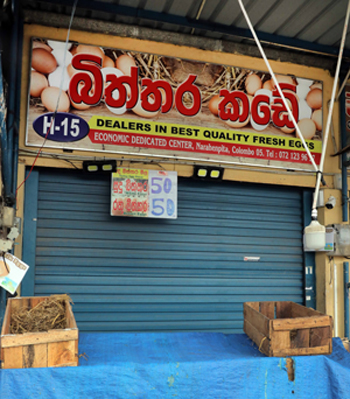 “The Animal Production Department has said the cost of an egg is Rs 46. When additional costs are added an egg should be priced at Rs 54. At present 40 percent of egg producing farms are closed. This is an attempt to import eggs,” Mr Weerasekare said.
“The Animal Production Department has said the cost of an egg is Rs 46. When additional costs are added an egg should be priced at Rs 54. At present 40 percent of egg producing farms are closed. This is an attempt to import eggs,” Mr Weerasekare said.
Minister Fernando said the CAA’s laws were targeting consumer protection.
“This is not the first time the CAA is controlling the price of eggs,” he said.
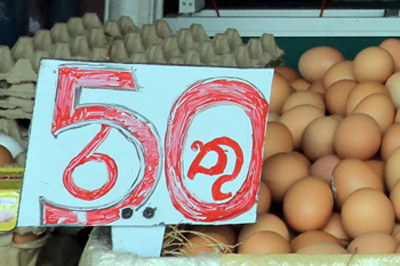
The best way to say that you found the home of your dreams is by finding it on Hitad.lk. We have listings for apartments for sale or rent in Sri Lanka, no matter what locale you're looking for! Whether you live in Colombo, Galle, Kandy, Matara, Jaffna and more - we've got them all!

